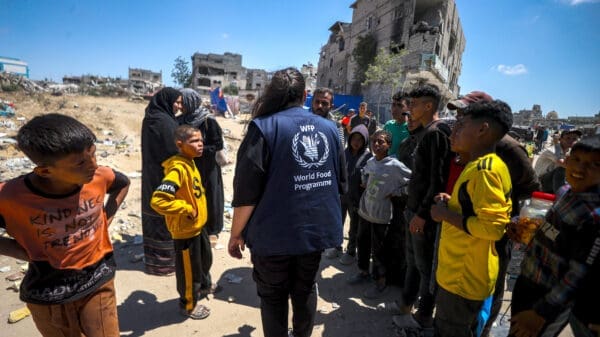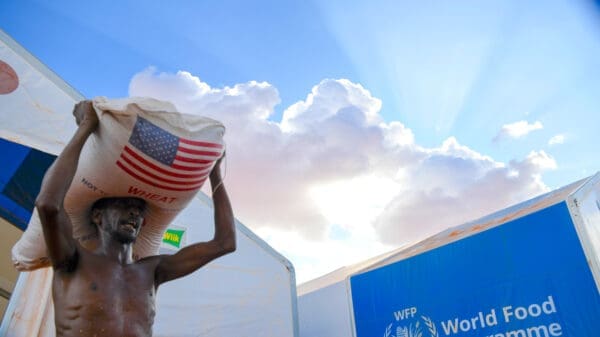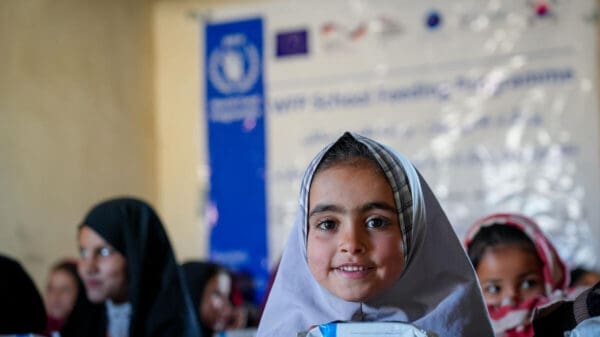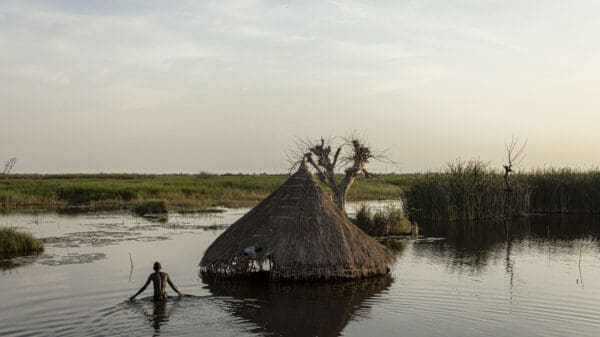With WFP’s Support, Families Can Return Home and Stay Dry Despite Historic Flooding in South Sudan
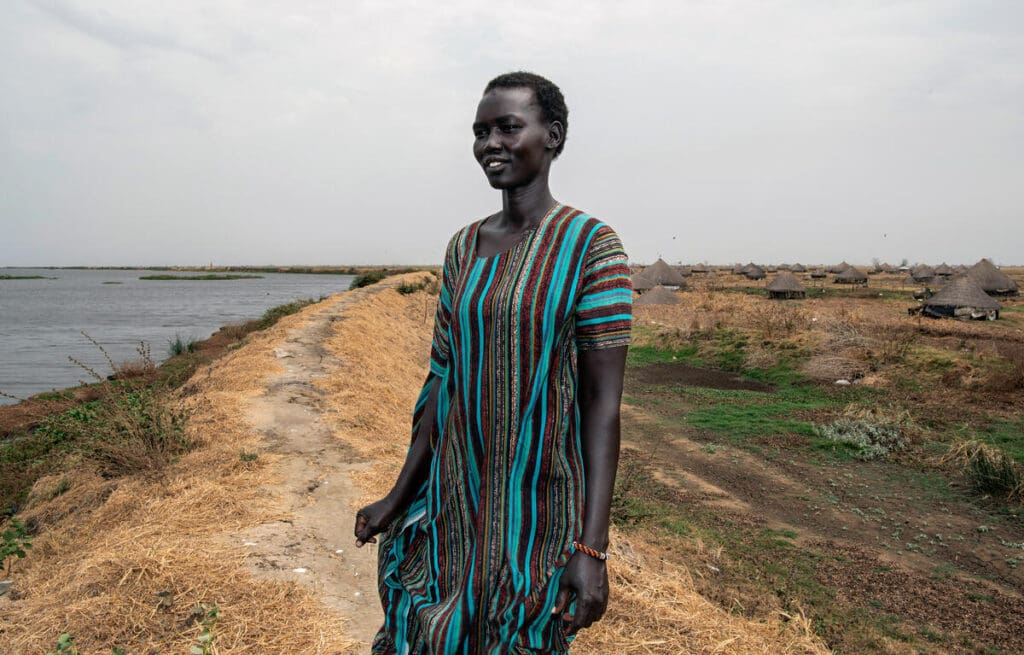
A United Nations World Food Programme (WFP) dike rehabilitation project is helping families to return home and build resilience against the climate crisis
Yar’s Family Returns Home
For three years, Yar Mayom Arok dreamed of returning to her home in Jalle, a small South Sudanese town on the edge of the Sudd – Africa’s largest wetland. She and her family fled their home in 2020, when floodwaters from the nearby Nile River broke through a dike and flooded their town in the central part of the country.
Before the flooding, Yar and her husband owned many cows and goats. She also ran a shop selling sugar, vegetable oil, biscuits and “royco” (a blend of spices for enhancing the flavor of food). They grew sorghum in the wet season, hunted antelope in the dry season and fished year-round.
Then came the devastation unleashed by the overflowing Nile River.
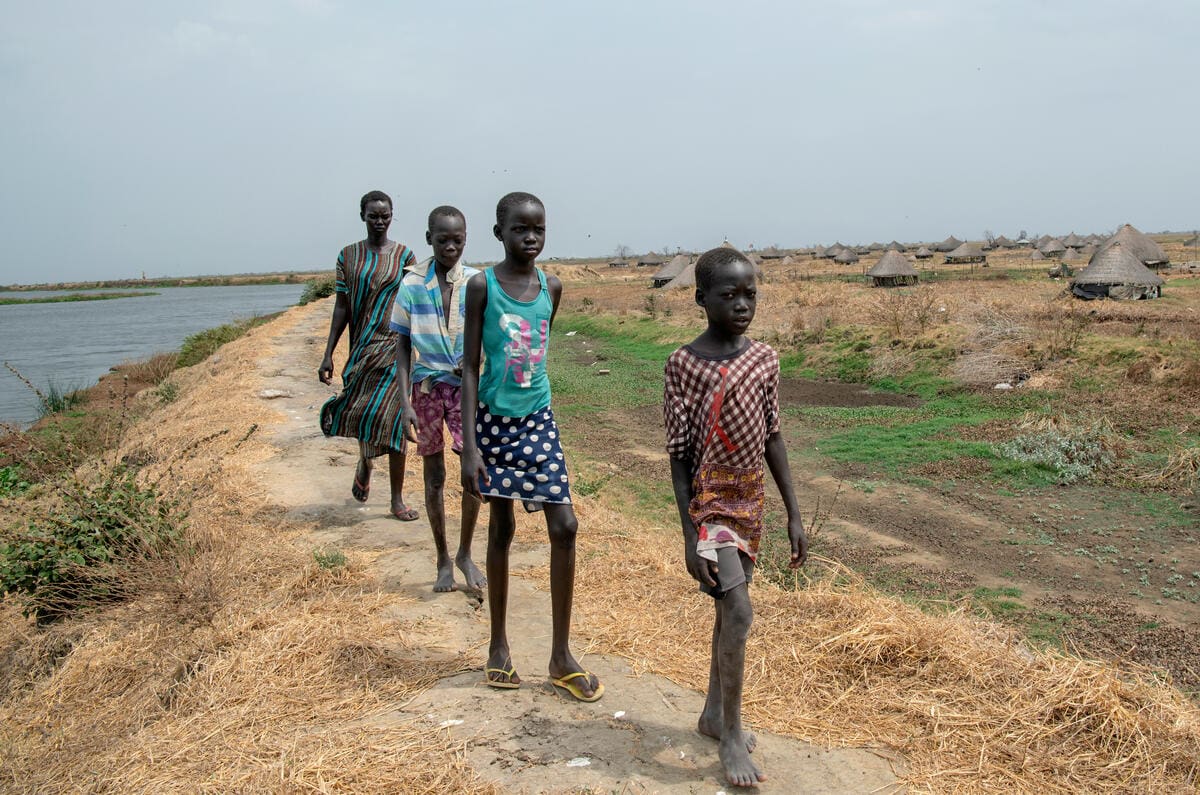
Yar walks with three of her children. After three years, Yar’s family was able to return to their home in Jalle.
“When the waters came, there was no time to save any of our belongings. We put the children in a boat and escaped to dry land,” recalls Yar.
The family sought refuge in a camp for displaced families in Mangalla, some 100 miles south of their home.
“Life was tough in the camp,” Yar says. “The food we were given was never enough. There was no way to earn any money and my children had little access to education.”
Three years later, the town is now dry and Yar’s dream of returning home came true thanks to an ambitious United Nations World Food Programme (WFP) project to repair a crucial dike holding back the Nile’s overflow.
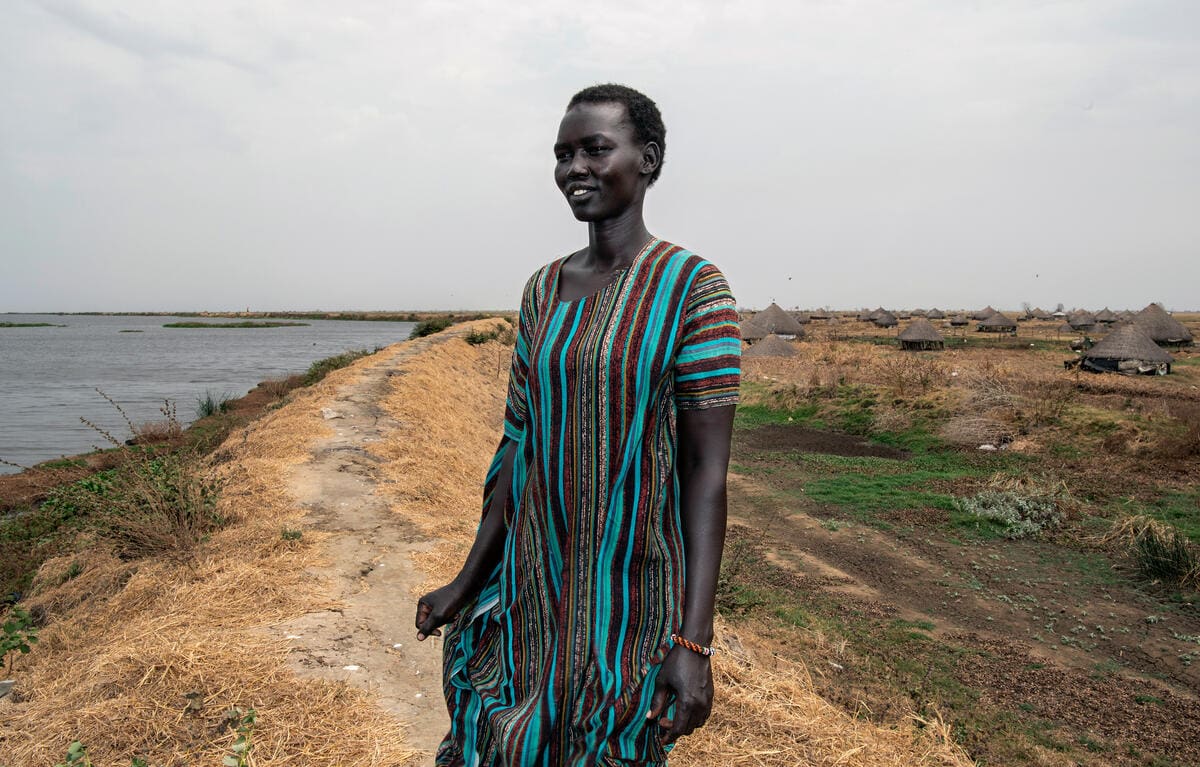
Yar stands on the rehabilitated dike that protects her town from flooding.
“When I heard about the dike repairs, I saw a chance for us to return home,” says Yar.
Since coming home, Yar has started a new business – this time selling tea. She hopes to earn enough money to reopen her shop and to buy new livestock.
Yar’s family is among the millions that the U.N. World Food Programme supports with food and cash assistance. Yar also participates in resilience and infrastructure projects in South Sudan, a country that is at the forefront of the climate crisis and bearing the brunt of more frequent and intense weather-related shocks.
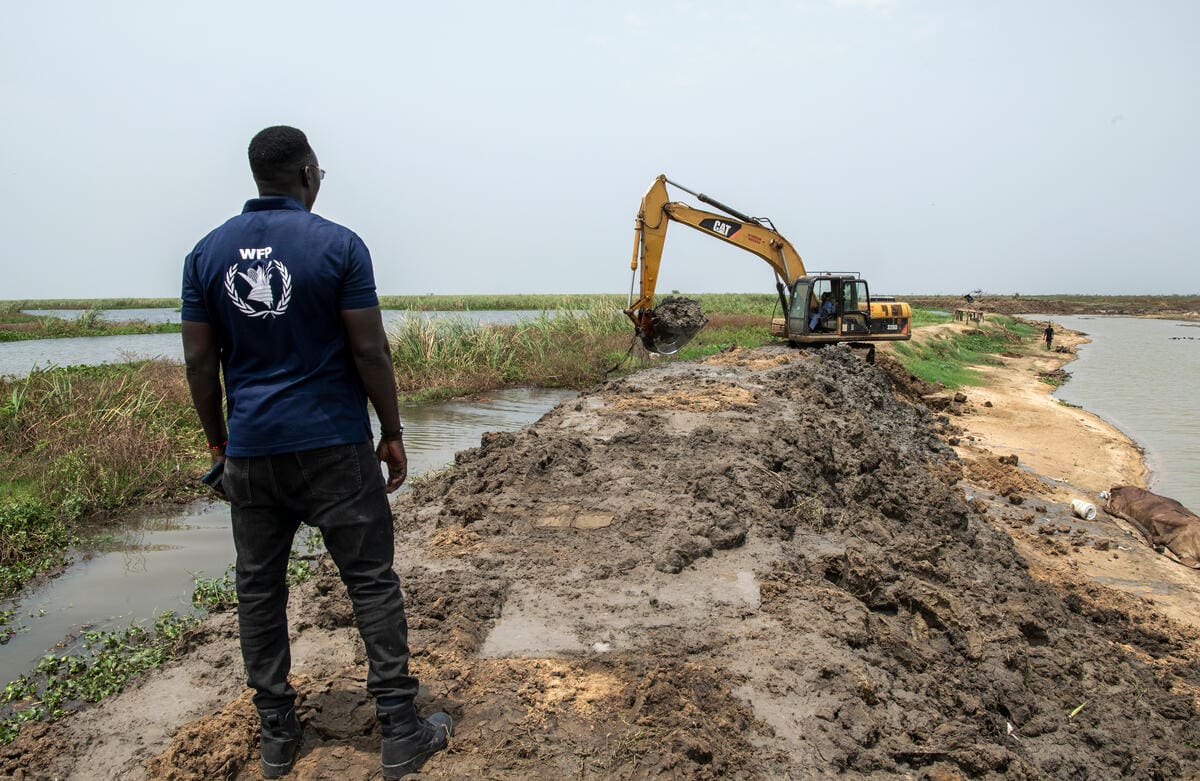
With partners and 2,000 workers, WFP repaired over 50 miles of the dike in Jalle.
“Across the country, our infrastructure and resilience projects are critical for keeping communities safe and connected as the climate crisis tightens its grip,” says Mary-Ellen McGroarty, U.N. World Food Programme country director in South Sudan.
“Whether it’s dikes to keep communities from flooding, roads to keep families and markets connected, or human-made ponds and wells to provide access to water during times of drought or prolonged dry spells, these initiatives are becoming increasingly critical as unpredictable weather patterns continue to have the heaviest impact on the families who have contributed the least to the climate crisis.”
Floods and Drought Devastate South Sudan
Unprecedented floods have swallowed large swathes of South Sudan while other parts are grappling with devastating drought.
The climate crisis is also compounding existing challenges in the country including conflict, poverty, and rising food and energy prices. This has left almost 8 million people facing crisis levels of hunger or worse – the highest number ever recorded.
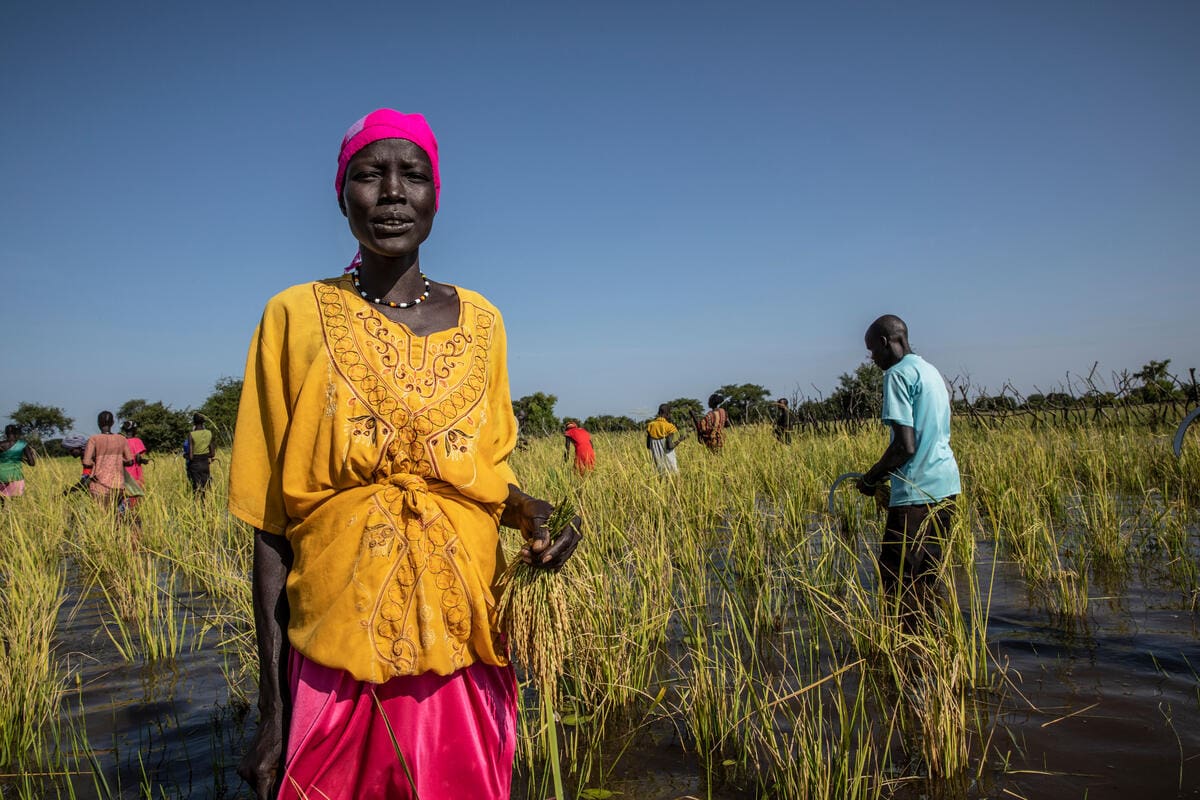
South Sudan is simultaneously drowning and drying as the climate crisis tightens its grip.
Now, a massive $567 million funding gap is forcing the U.N. World Food Programme to prioritize assistance for those closest to starvation. This means we can only provide half-size rations just as millions of families face record levels of acute hunger.
The dike rehabilitation is just one of many initiatives the U.N. World Food Programme is rolling out to tackle the climate crisis, improve food security and develop rural economies in South Sudan.
This blog was originally written by Alessandro Abbonizio and was published on April 19, 2023. To learn more about our work in South Sudan, click here.
